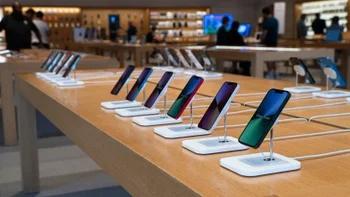Google agrees to $60 million penalty for tracking Android users against their will

Google will have to pay a fine of $60 million for misleading Australian consumers about its location data collection process between January 2017 and December 2018, Australian Broadcasting Corporation reports.
Last year, the federal court sided with the Australian Competition and Consumer Commission (ACCC) on the complaint that Google continued tracking the movements of Android and Pixel users unless they said "No" or "Do Not Collect" to both "Location History" and "Web & App Activity."
This was deemed as misleading by Justice Thomas Thawley as someone who ticked "No" to just one of the options would still be tracked. Thawley said that people "acting reasonably" would not have thought that enabling "Web and App Activity" tracking would also give Google the permission to use their location data as the web form made no specific reference to location.
Per ACCC, the issue may have affected nearly 1.3 million Australian users. Google believes only a narrow group of users was impacted.
Ideally, Google should have made it sufficiently clear whether it would still collect location data when the location history was set to off but the web and app activity was on. The web and app activity setting was turned on by default.
A federal court hearing was told today that Google has agreed to a penalty of $60 million. The Mountain View giant also updated the settings that formed the basis of the complaint in 2018. The court has also asked Google to take measures to ensure a commitment to compliance and also educate its staff on Australian Consumer law.
Google says that it took care of the issue before the Federal Court action was brought and has changed the way it manages location data.
We've invested heavily in making location information simple to manage and easy to understand with industry-first tools like auto-delete controls, while significantly minimising the amount of data stored. As we've demonstrated, we're committed to making ongoing updates that give users control and transparency, while providing the most helpful products possible."
US states sued Google earlier this year for deceptive location tracking practices. The lawsuit said that Google keeps tabs on consumers even when they turn off location history and in reality, there is no way to stop the company from collecting and profiting from location data. Google uses that information to create detailed user profiles to attract advertisers.
Australia recently fined Samsung $9.8 million for making false claims about the water resistance of some of its best Galaxy phones.












Things that are NOT allowed: